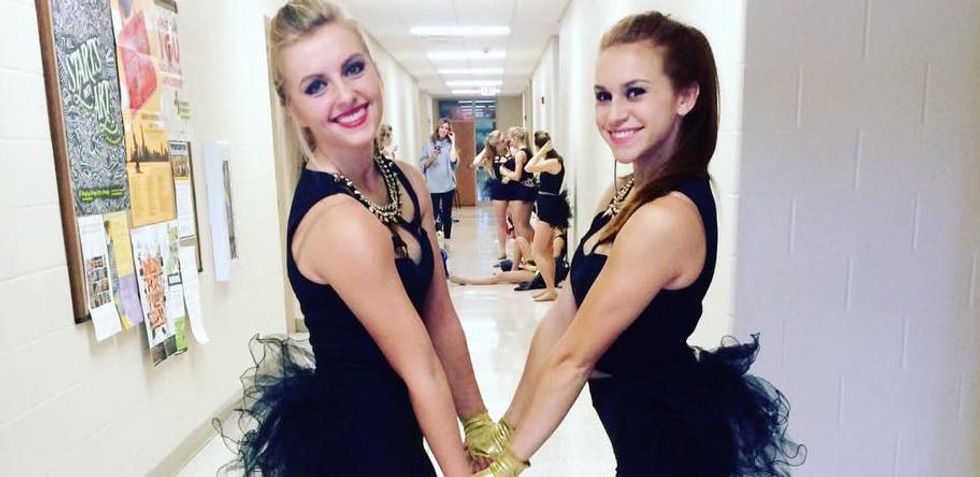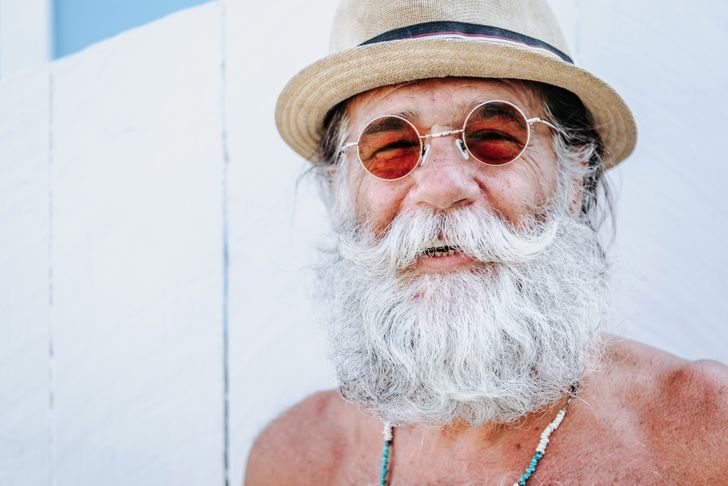This is a subject I feel extremely passionate about. So passionate that I initially went into college with the aspiration to earn an advanced level of education in the field of psychology so I could be qualified to help make the differences mental health care needs in grade schools.
I went to a small, midwestern school that had approximately 800 students enrolled throughout the grades of pre-k through twelfth. My school, for the later part of my education, had one school counselor for the ENTIRE 800-person student body.
I want to make it clear that I think the school counselor I had growing up did the best possible job she could being spread so thin and having numerous responsibilities — but I think it was unfair to her, and the students, to not have an individual in the school whose sole focus was to watch after and educate students and teachers on mental health.
In a school that was my size, maybe employing more than one counselor wasn't financially possible — even though I think investing in mental health care should be one of the most important things adults can provide for children and teenagers.
With that being said, I think that if school districts are going to skimp growing children on learning how to maintain their wellbeing and mental health, they should at least educate teachers on the basics of mental health, how to identify warning signs and how to start conversations regarding their students' mental health.
Speaking to my experiences, I encountered very few teachers who seemed to take an interest in what was actually going on inside the minds of their students.
I truly got the impression that some teachers were there only to receive a paycheck — just going through the motions (which I don't think I have a right to be mad about, but as a student, it was frustrating and discouraging). But they would have rather dismissed students as being unmotivated, lazy or misbehaved, than considering outside variables that could be affecting their performances in school (this was also done harshly to students' faces and in front of their peers — if that doesn't diminish an adolescent's already fragile self-esteem, I don't know what will... I'm all for tough love, but sometimes it was just cruel and seemed power-hungry).
Unfortunately, those teachers I felt the most comfortable with and seemed to actually care were often labeled and rumored to be more "friends" with their students than actually acting like a "teacher."
I want to make one thing clear as a former student who struggled with their mental health: The quality of education they provided was exemplary. In no way did I think that those few teachers that actually took a genuine interest in how I was doing made me feel like they were more of a friend than a teacher to me.
Teachers may feel out of their comfort zone when speaking about mental health and feel it is not in their jurisdiction to do so, but some conversation is better than none. Teachers interact with students more than their families do. This means that teachers have the opportunity to be the "first responders" to students' mental health.
There are warning signs that have the potential to be identified by teachers. Medical diagnoses shouldn't be the only reason teachers take notice of their students' mental health. Circumstances outside a student's control can impact whether or not their mental health is cared for.
A miseducation, or lack of education, can also be held accountable as a reason students may not get the help they need. This is where I think the roles of schools is crucial.
In health classes, we were taught about the importance to wash your hands, dental care, how to protect yourself from common colds and the flu, as well as learning a few basics on reproductive health (not sex education, that was never provided) — but never was there a discussion concerning mental health.
I feel this is an issue.
We weren't taught about mental illness and disorders.
We weren't taught the differences between normal sadness and depression.
We weren't taught the differences between normal anxieties and nerves, compared to anxiety disorders.
We weren't taught that if we do feel the extremes of these, we aren't lazy or crazy and that we should seek professional help.
We weren't taught that feeling overwhelming anxiety about showing up to school isn't normal.
We weren't taught that frequently crying in school bathrooms isn't normal.
We weren't taught that wanting to hide in bathrooms to avoid people out of fear isn't normal.
We weren't taught the dangers and consequences of skipping meals.
We weren't taught about eating disorders.
We weren't taught that sleep is the most important component of being healthy as a developing human.
We weren't taught that being stressed out to the point you feel ill is not normal.
We weren't taught the differences between healthy and unhealthy relationships.
We weren't taught about sexual harassment or assault, and how to seek help if we feel violated.
We weren't taught how to combat social pressures — other than saying no, and that's been proven to be extremely ineffective by social psychologists (again, there are many studies conducted and prove this, especially concerning the DARE program).
We weren't taught that feeling isolated and alone isn't normal.
We weren't taught that your GPA or athletic performance does NOT determine your worth.
We weren't taught that your sanity should come before school work and extracurriculars.
We weren't taught about healthy habits to cope with unhealthy feelings.
We weren't taught about the dangers of self-harm.
We weren't that you shouldn't have to stay silent and keep pushing through hard times alone.
We weren't taught that you shouldn't have to keep pushing until you break.
We weren't taught how unhealthy habits, can develop into actual, life-threatening issues.
We weren't taught that feeling like you're struggling with your mental health doesn't make you weak. We weren't taught that asking or seeking help is incredibly brave and nothing to be ashamed about.
We weren't taught about the dangers of suicidal thoughts and the severity of them. We weren't taught that suicide doesn't have to be the answer. We weren't taught that every life is worth living.
We shouldn't have to feel like the only people who could possibly understand what we feel are celebrities who become our role models because they publicly go through their struggles; especially when teachers have the opportunities to inspire and be their students' role models.
All of the above were normal for me, as well as other people I know, along with so many other adolescents going through school.
All of the above were also things that were sparsely discussed at all. It was as if the "we weren't taught" list I mentioned above consisted of prophane, explicit content — and not real life thoughts, behaviors and conditions people have to deal with every day, including students.
The choice by schools to be ignorant about educating students on their mental health is irresponsible and dangerous. I don't have to express the impact mental health has on kids. There are thousands of scholarly articles expressing the importance of mental health care in the lives of children and teenagers that are available to read.
People may argue that schools are simply institutions of education — and the conversation of mental health, to the extent I am speaking about, isn't their responsibility.
But when an institution is responsible for students 8 hours of the day, 3/4 of the year, for 18 years — their students' education is not their only responsibility.
Just as it is a school's responsibility to defend their students from physical harm — it should be their same, equal responsibility to defend students from mental harm — from themselves.
The period of life students spend in grade schools are lonely, confusing, hormonal, frustrating, crucial, important and frankly, forced. Until the age of 16, at least in Iowa, students are lawfully required to attend school. Schools need to make a safe environment on all fronts, especially mental health.
As students who are 18 and younger, understanding how to take care of their mental health is not something they should have to learn how to do on their own.
I want to take a moment to thank the teachers that make sure their students are thriving not only academically, but mentally. The teachers that aren't afraid to possibly be "too personal." Those are the teachers that made the biggest impact on my education and helped my mental health the most. I'm sure other students would agree.
To the teachers just going through the motions, I understand we all have our own lives, responsibilities, struggles and distractions, but please do more than just go through the motions. Show up for your students. Be there for them. The student you may least expect to ever need help may be the one that needs it the most. The student that you may believe is unmotivated and "lazy" may need extra attention or someone to actually give a damn about them.
I believe school systems can do better; for the sake of your students, please do better.



 Photo by
Photo by  Photo by
Photo by  Photo by
Photo by  Photo by
Photo by 


 people sitting on chair in front of computer
people sitting on chair in front of computer



 all stars lol GIF by Lifetime
all stars lol GIF by Lifetime two women talking while looking at laptop computerPhoto by
two women talking while looking at laptop computerPhoto by  shallow focus photography of two boys doing wacky facesPhoto by
shallow focus photography of two boys doing wacky facesPhoto by  happy birthday balloons with happy birthday textPhoto by
happy birthday balloons with happy birthday textPhoto by  itty-bitty living space." | The Genie shows Aladdin how… | Flickr
itty-bitty living space." | The Genie shows Aladdin how… | Flickr shallow focus photography of dog and catPhoto by
shallow focus photography of dog and catPhoto by  yellow Volkswagen van on roadPhoto by
yellow Volkswagen van on roadPhoto by  orange i have a crush on you neon light signagePhoto by
orange i have a crush on you neon light signagePhoto by  5 Tattoos Artist That Will Make You Want A Tattoo
5 Tattoos Artist That Will Make You Want A Tattoo woman biting pencil while sitting on chair in front of computer during daytimePhoto by
woman biting pencil while sitting on chair in front of computer during daytimePhoto by  a scrabbled wooden block spelling the word prizePhoto by
a scrabbled wooden block spelling the word prizePhoto by 
 StableDiffusion
StableDiffusion
 StableDiffusion
StableDiffusion
 StableDiffusion
StableDiffusion

 women sitting on rock near body of waterPhoto by
women sitting on rock near body of waterPhoto by 




